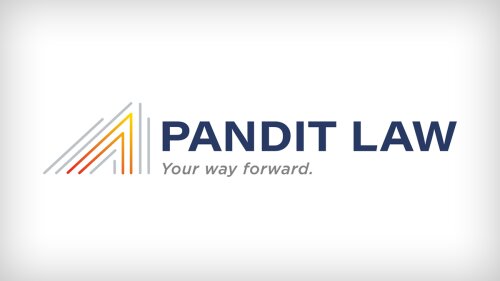Best Reinsurance Lawyers in United States
Share your needs with us, get contacted by law firms.
Free. Takes 2 min.
Or refine your search by selecting a city:
List of the best lawyers in United States
About Reinsurance Law in United States
Reinsurance is a financial transaction in which an insurance company transfers portions of its risk portfolios to other parties to reduce the likelihood of having to pay a large obligation resulting from an insurance claim. In the United States, reinsurance is primarily governed by state law, alongside federal regulations where applicable. The objective of reinsurance is to spread the risk and enhance the capacity of insurers to underwrite new policies. In the U.S., the reinsurance industry plays a crucial role in stabilizing the insurance market, protecting insurers, and ensuring solvency.
Why You May Need a Lawyer
There are several scenarios where legal advice in reinsurance may be necessary:
- Contract Disputes: Issues in interpreting or enforcing reinsurance agreements often require legal expertise.
- Regulatory Compliance: Navigating the complex regulatory landscape of state and federal laws surrounding reinsurance.
- Claims Handling and Settlement: An attorney can assist in dispute resolution over reinsurance claims settlement processes.
- Litigation: Acting on behalf of an insurer or reinsurer in lawsuits involving reinsurance transactions.
- Reinsurance Program Structuring: Legal counsel can aid insurance companies in structuring or optimizing reinsurance programs.
Local Laws Overview
The reinsurance industry in the United States is predominantly regulated at the state level, with each state maintaining its own set of laws and regulations. Key aspects include:
- Licensing Requirements: Reinsurance companies must be licensed in each state they operate, with specific requirements varying by state.
- Credit for Reinsurance: Regulations require a domestic insurer to obtain a certain percentage of reinsurance from licensed or accredited reinsurers.
- Capital and Solvency Standards: Insurers must meet minimum financial standards to ensure they can cover claims.
- Regulatory Filing and Reporting: Detailed documentation and reporting of transactions are necessary to satisfy regulatory transparency standards.
- Collateral Requirements: Non-U.S. reinsurers may need to post collateral as a security against reinsured liabilities.
Frequently Asked Questions
What is the main purpose of reinsurance?
The main purpose of reinsurance is to share the risk undertaken by insurers, protecting them from significant financial loss and ensuring they can cover large claims, thereby maintaining market stability.
How does reinsurance benefit insurance companies?
Reinsurance allows insurance companies to manage risk more effectively, increases their capacity to underwrite more insurance policies, and provides protection against large losses.
Is reinsurance mandatory for insurance companies in the U.S.?
While not legally mandatory, engaging in reinsurance is a prudent business decision for many insurers to manage their financial risk exposure better.
What types of reinsurance contracts exist?
Common types of reinsurance contracts include treaty reinsurance, covering a block of policies, and facultative reinsurance, covering individual risks.
Who regulates the reinsurance industry in the U.S.?
Reinsurance is primarily regulated at the state level in the U.S., although certain aspects fall under federal oversight such as cross-border trade.
What are collateral requirements for foreign reinsurers?
Non-U.S. reinsurers must often post collateral to ensure obligations can be met unless they are certified reinsurers or come from countries with reciprocal arrangements.
Can reinsurance contracts be rewritten or terminated?
Reinsurance contracts typically contain terms about their duration and termination but altering these contracts requires agreement from both parties involved.
What is the difference between treaty and facultative reinsurance?
Treaty reinsurance covers a portfolio of risks automatically, while facultative reinsurance requires separate negotiation for each risk being reinsured.
Are claims disputes common in reinsurance?
Yes, disputes over reinsurance claims can occur, particularly regarding interpretation of the contract or the claims settlement process.
How can a lawyer assist with reinsurance matters?
An experienced lawyer can provide advice on contract negotiation, compliance with regulatory requirements, resolving disputes, and understanding complex legal issues surrounding reinsurance.
Additional Resources
For further information or assistance, consider the following resources:
- The National Association of Insurance Commissioners (NAIC)
- State insurance regulatory bodies
- Reinsurance Association of America (RAA)
- The American Bar Association (ABA) - Insurance Law Section
Next Steps
If you are considering seeking legal advice for reinsurance matters, follow these steps:
- Identify the specific issues you need help with and gather all relevant documentation.
- Research and consult with attorneys specializing in insurance and reinsurance law.
- Consider scheduling a consultation to discuss your case and understand the prospective attorney's experience and approach.
- Evaluate your options based on legal guidance received and decide on your onward course of action.
Taking legal advice at an early stage can help mitigate risks and ensure that your rights are adequately protected.
Lawzana helps you find the best lawyers and law firms in United States through a curated and pre-screened list of qualified legal professionals. Our platform offers rankings and detailed profiles of attorneys and law firms, allowing you to compare based on practice areas, including Reinsurance, experience, and client feedback.
Each profile includes a description of the firm's areas of practice, client reviews, team members and partners, year of establishment, spoken languages, office locations, contact information, social media presence, and any published articles or resources. Most firms on our platform speak English and are experienced in both local and international legal matters.
Get a quote from top-rated law firms in United States — quickly, securely, and without unnecessary hassle.
Disclaimer:
The information provided on this page is for general informational purposes only and does not constitute legal advice. While we strive to ensure the accuracy and relevance of the content, legal information may change over time, and interpretations of the law can vary. You should always consult with a qualified legal professional for advice specific to your situation.
We disclaim all liability for actions taken or not taken based on the content of this page. If you believe any information is incorrect or outdated, please contact us, and we will review and update it where appropriate.
Browse reinsurance law firms by state in United States
Refine your search by selecting a state.















